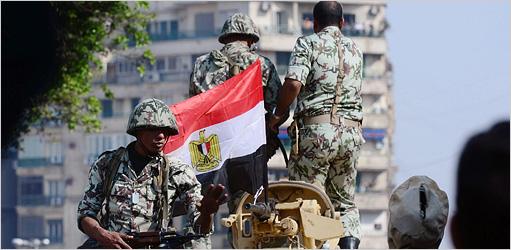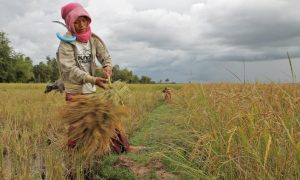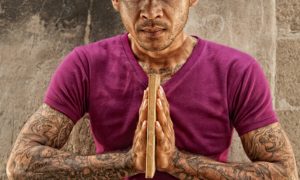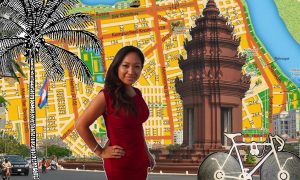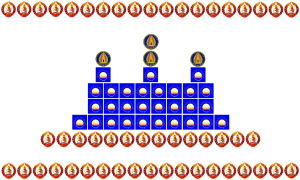BROOKLYN, NY – If the Mubarak administration in Egypt were as strong as the country’s iconic pyramids, it might have withstood the ‘million-man march.’ But those world wonders were built by the pharaohs, and Mubarak is far from godly in the eyes of the general populace. So as the inevitable neared, voices emerged throughout cyberspace on how the role of social media, namely Twitter and Facebook, have aided in the movement that saw the rise of a new Egypt. Can revolutions truly be broadcast through these unconventional forms of media? We have seen it through Neda’s Iran (RIP) last year and recently in Tunisia. But could ‘tweets’ and ‘likes’ ever be the undoing of another long-serving ruler, Prime Minister Hun Sen of Cambodia?
In a recent telephone interview via Candlelight Radio Program, outspoken government critic and leader of the opposition party, Sam Rainsy, believes Cambodia has all the same ingredients to make it the next Egypt in terms of a popular uprising. He cites five sources as the root: 1) extreme poverty, 2) social injustice, 3) inflation, 4) unemployment, and 5) corruption. Many observers will agree on these realities, which are a set of problems found in most developing nations, but to predict a fate like Egypt’s is premature and unrealistic.
In my view, there are three reasons why the social media uprising will not come to Cambodia.
LOW INTERNET PENETRATION
According to Google Data, there were only 74,000 Internet users in the Kingdom in 2008. Looking at the percentage ratio between users and the overall population, that figure is a microscopic 0.005%. Now compared to that of Iran (31%), Egypt (17%), and Tunisia (27%), respectively, Cambodia’s majority rural population has a long way before they can utilize social media to cause changes to their local and national governments. And it doesn’t help when the country has one of the highest Internet rates in all of ASEAN.
LOW TWITTER MEMBERSHIP COUNT
When was the last time you received a tweet from a Cambodia-based journalist, human rights activist, or university student? No, I am not talking about a retweet of an article from sources like Phnom Penh Post or KI-Media. The Khmer Twitter community is almost non-existent; there are probably more Khmer celebrities fan page accounts on Facebook than anything else. This is critical because it is these individuals who are on the ground, who serve as the first line of information when news of unrest in countries such as Egypt, Tunisia and Iran first reached our televisions and newspapers.
A CULTURE OF FEAR
Despite having a reputation as a country with one of the most free and open presses in the region, Cambodia still has a culture of fear. Perhaps it took root during the Khmer Rouge genocidal regime of the mid-1970s, and was later reaffirmed through Hun Sen’s strong-arm tactics. But try distrubuting leaflets about the 1997 grenade attack or January 7th Liberation Day, or even sharing a Global Witness report through e-mail, and the government’s specially created Press and Quick Reaction Unit will be on your tail faster than you can say “censorship.” Case in point: Seng Kunakar. In order for similar movements to occur in Cambodia, the government must be able to have a higher tolerance for criticisms from its people.
—
The opinions expressed by the author(s) and those providing comments are theirs alone, and do not reflect the opinions of any current or past employer(s) and affiliates. Phatry Derek Pan is not responsible for the accuracy of any of the information supplied by its contributors.


